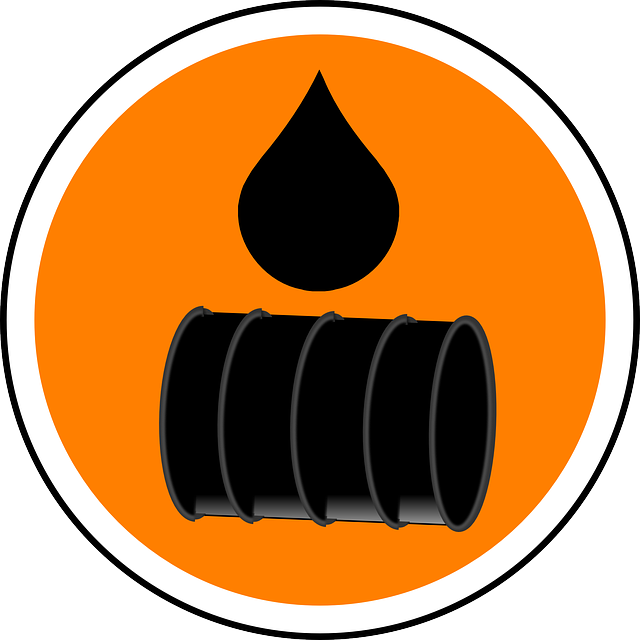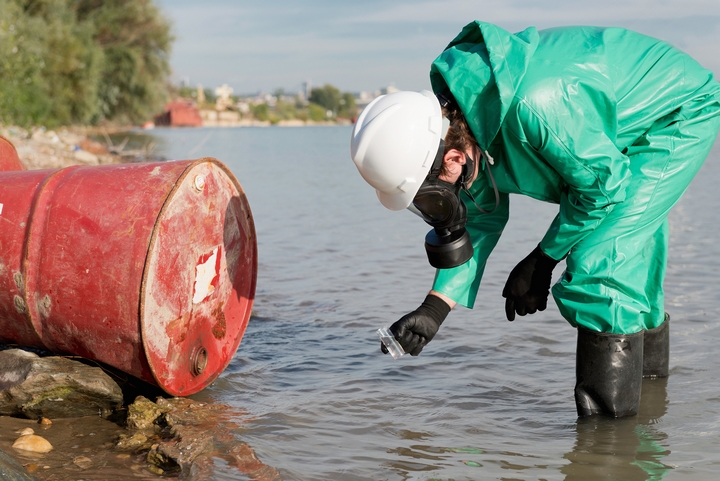Leading Industrial Wastewater Treatment Solutions: Making Certain Compliance and Effectiveness
Leading Industrial Wastewater Treatment Solutions: Making Certain Compliance and Effectiveness
Blog Article
Understanding the Comprehensive Refine of Liquid Waste Disposal: Ideal Practices and Environmental Effect Considerations
The administration of liquid garbage disposal is a multifaceted issue that requires a detailed understanding of numerous finest methods and their connected ecological influences. From the sorts of liquid waste created to the approaches used for collection, treatment, and final disposal, each step plays an important role in safeguarding environments and public health and wellness. As regulative requirements develop and innovation breakthroughs, the discussion around these procedures ends up being increasingly essential. What ramifications do these modifications hold for future sustainability efforts, and just how can stakeholders guarantee that they are properly dealt with?
Kinds of Fluid Waste
Understanding the numerous kinds of fluid waste is vital for effective monitoring and disposal methods. Liquid waste can be generally categorized right into several kinds, each needing unique handling and treatment techniques.
Industrial liquid waste usually includes dangerous products, including heavy metals, solvents, and chemicals, produced during producing procedures. These wastes require strict regulatory conformity to protect human health and the atmosphere. Domestic liquid waste mainly refers to wastewater produced from households, consisting of sewage and greywater, which, although much less hazardous, can still posture significant risks if poorly taken care of.
Agricultural liquid waste, consisting of overflow from farms, usually has plant foods and pesticides that can lead to environmental degradation otherwise dealt with adequately. Clinical liquid waste, produced from healthcare facilities, includes infected fluids such as bodily fluids and chemicals, requiring specialized disposal techniques to avoid infection and ecological contamination.
Last but not least, oil and oil waste, commonly generated by restaurants and auto sectors, can trigger severe blockages in drain systems otherwise managed appropriately. Recognizing these groups assists in targeted methods for therapy, compliance with policies, and reliable disposal methods, eventually promoting environmental sustainability and public health security.

Collection Techniques
Efficient collection methods are vital for the appropriate monitoring of liquid waste, ensuring that it is collected securely and efficiently before treatment or disposal. Numerous methods are employed depending on the kind of liquid waste created, the quantity, and the details features of the waste.
One usual method is the usage of dedicated collection tanks or sumps, which are made to catch liquid waste at the resource. These systems usually include pumps that assist in the transfer of waste to bigger storage space containers or treatment centers. Furthermore, mobile collection devices geared up with vacuum cleaner innovation are employed in circumstances where waste is generated intermittently or in hard-to-reach places.
For commercial setups, closed-loop systems can properly reduce spills and leaks, enabling the recovery and reuse of fluid waste. It is likewise important to train employees on correct collection protocols to alleviate risks related to dangerous substances.
Additionally, applying routine upkeep routines for collection devices makes certain optimal efficiency and security. The integration of advanced surveillance systems can enhance collection performance by providing real-time information on waste degrees and prospective threats. On the whole, effective collection methods are foundational to lasting liquid waste administration techniques.
Therapy Processes
Therapy processes play a vital duty in the management of liquid waste, changing potentially unsafe materials right into multiple-use resources or safe effluents - liquid waste disposal. These procedures can be extensively classified into physical, chemical, and organic approaches, each customized to attend to certain contaminants present in the waste stream
Physical therapy approaches, such as sedimentation and filtration, job by getting rid of put on hold solids and particle issue. These techniques are typically the very first step in the treatment chain, efficiently decreasing the lots on subsequent procedures. Chemical treatments involve using reagents to counteract damaging compounds, speed up heavy metals, or oxidize natural toxins, consequently boosting the safety of the effluent.
Organic treatment procedures, consisting of triggered sludge systems and anaerobic food digestion, maximize the natural capabilities of bacteria to weaken natural issue. These techniques are especially reliable for wastewater containing biodegradable toxins. Advanced therapy technologies, such as membrane purification and progressed oxidation procedures, are increasingly employed to accomplish greater degrees of filtration.
Incorporating a combination of these treatment methods not just guarantees compliance with governing criteria but also advertises ecological sustainability by recuperating useful resources from liquid waste.
Disposal Options
Just how can companies make sure the risk-free and accountable disposal of fluid waste? Effective disposal options are essential for protecting public health and the environment. The main approaches include land disposal, therapy, and incineration adhered to by discharge right into metropolitan wastewater systems.
Land disposal includes the mindful containment of fluid waste in assigned land fills, making certain that it does not seep into bordering soil or water. Incineration, on the various other hand, topics fluid waste to heats, transforming it right into ash and gases, which need correct filtering to reduce discharges. This technique appropriates for hazardous wastes that can not be dealt with via standard ways.
In cases where fluid waste can be treated, organizations might choose organic or chemical therapy procedures to reduce the effects of harmful components prior to discharging the treated effluent right into metropolitan systems. This path typically Read Full Report straightens with governing demands, guaranteeing that the effluent meets safety requirements.
Ultimately, companies have to conduct detailed assessments address of each disposal option to establish its feasibility, considering aspects such as waste structure, regulatory compliance, and potential threats to health and the setting. By choosing suitable disposal approaches, companies can add to an accountable waste monitoring method.
Ecological Effect
The environmental effect of liquid waste disposal is an essential factor to consider for organizations looking for to reduce their eco-friendly impact. Improper disposal techniques can result in substantial contamination of water sources, dirt degradation, and negative effects on neighborhood ecosystems. As an example, dangerous fluids can seep into groundwater, posturing threats to drinking water products and marine life. Furthermore, the discharge of neglected or inadequately dealt with waste into surface waters can cause eutrophication, bring about oxygen deficiency and the subsequent fatality of fish and other organisms.

To minimize these effects, organizations have to adopt finest practices such as carrying out strenuous waste treatment processes, promoting recycling and reuse, and sticking to regulative standards. By taking a positive method to fluid waste management, entities can considerably decrease their environmental impact while supporting sustainable advancement objectives. Ultimately, a thorough understanding of the ecological effects related to liquid garbage disposal is vital for informed decision-making and responsible stewardship of all-natural resources.
Verdict
Efficient management of liquid waste is crucial for safeguarding ecological honesty and public health. Inevitably, a click for source comprehensive understanding of fluid waste disposal not only alleviates environmental influences yet also promotes a commitment to liable source management and ecological stewardship.
The management of fluid waste disposal is a diverse concern that requires a comprehensive understanding of numerous best practices and their linked ecological effects. From the kinds of fluid waste produced to the techniques used for collection, treatment, and last disposal, each action plays a vital duty in securing environments and public health.The environmental influence of liquid waste disposal is an important factor to consider for companies seeking to decrease their environmental footprint. Inevitably, a comprehensive understanding of the environmental impacts connected with fluid waste disposal is vital for educated decision-making and liable stewardship of natural resources.
Eventually, a thorough understanding of liquid waste disposal not just reduces environmental impacts yet also fosters a commitment to liable resource administration and environmental stewardship.
Report this page